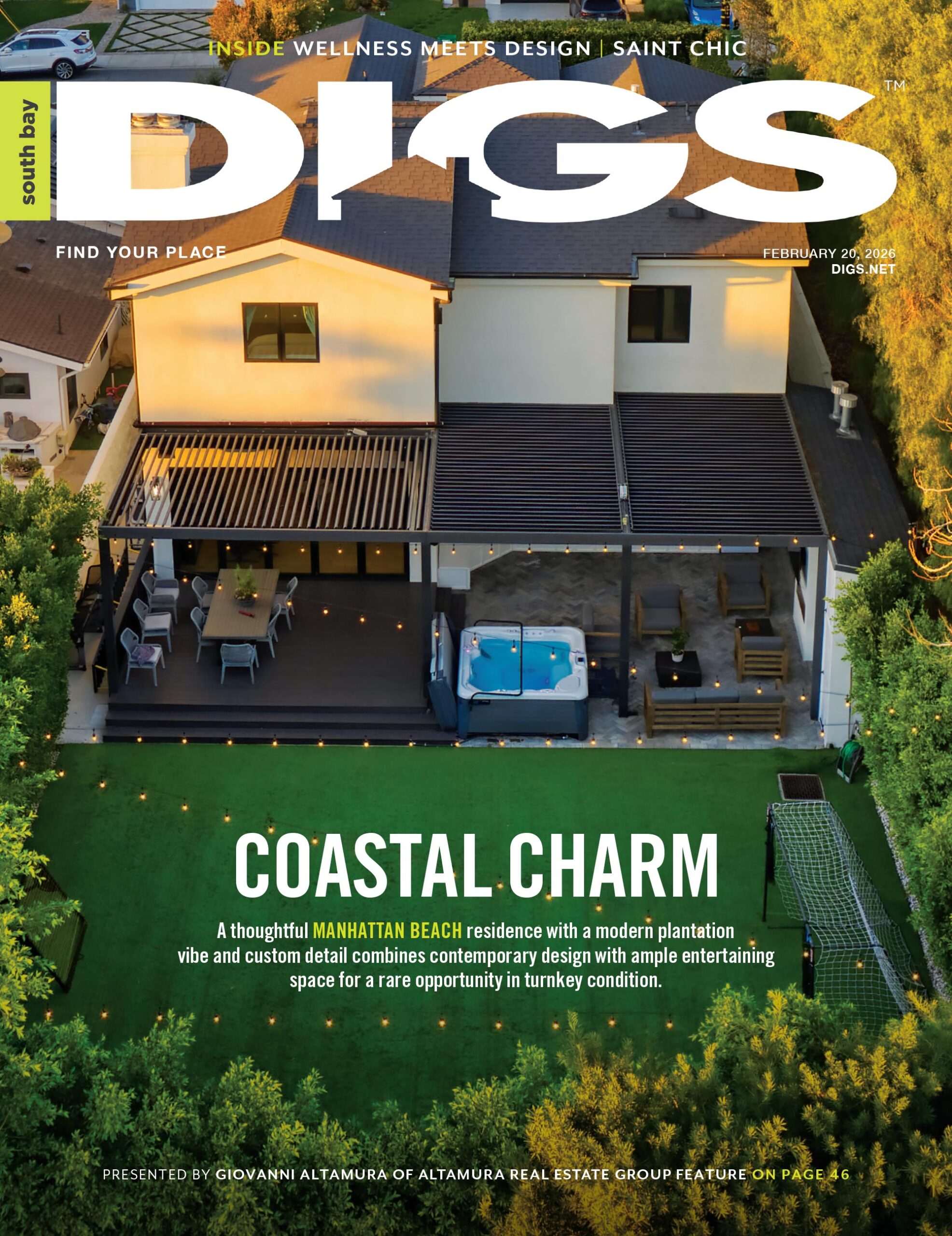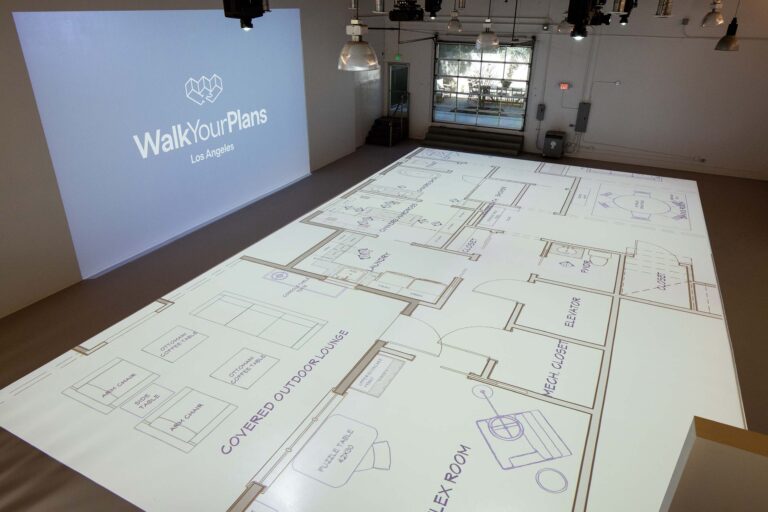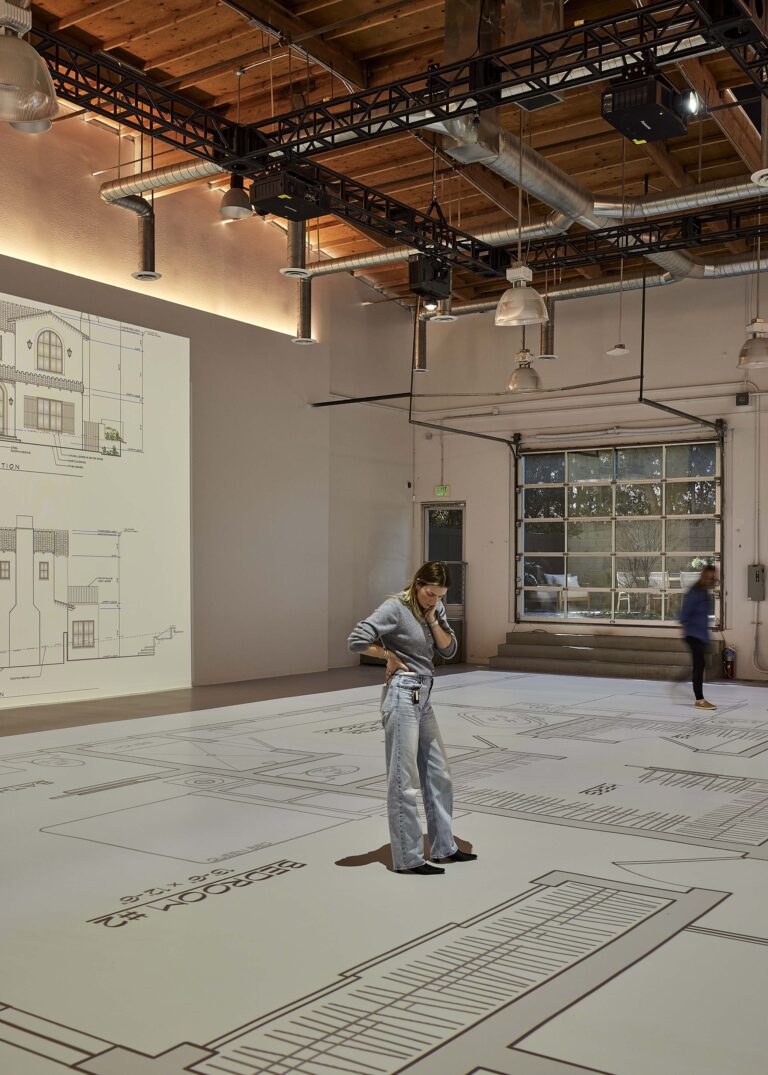Table of Contents
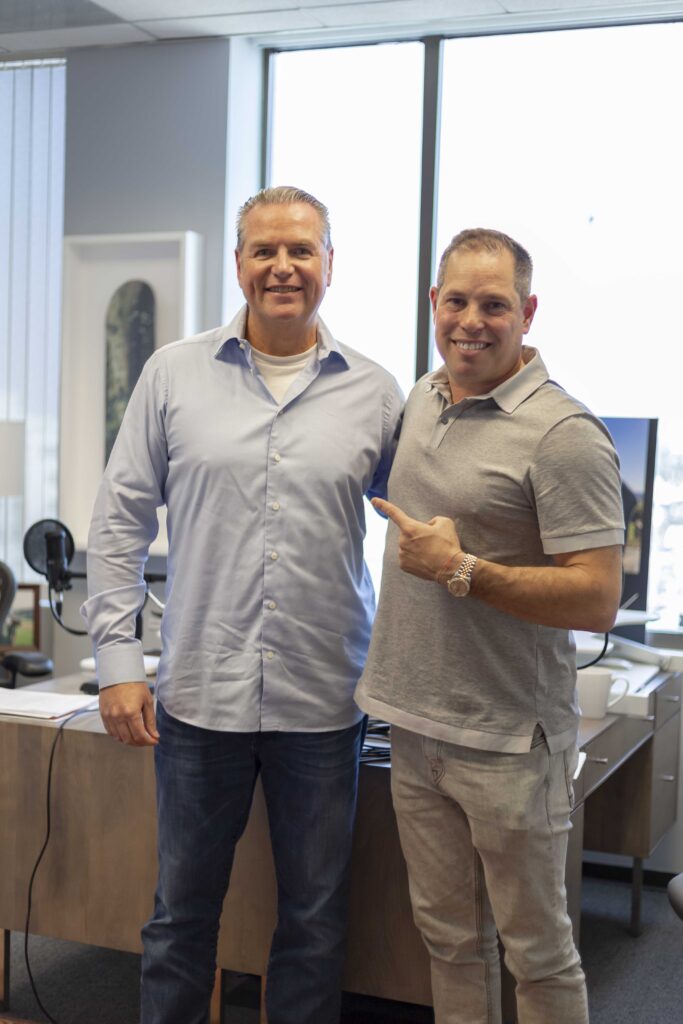
In this Episode
Realtor and fellow podcaster, Danny Brown of Compass speaks with DIGS about all things Los Angeles real estate, USC network groups, and the unique avenue of coming into real estate through the music industry. Danny Brown takes us from chasing the dream of Major League Baseball and coming up against the reality of future major leaguers, hustling his way through Hollywood‘s night scene doing A&R in the music industry and landing in the center of Beverly Hills real estate at one of the top firms in Los Angeles.
With 20 years of experience selling real estate on the Westside under his belt, Danny brings a unique perspective and voice to the industry, launching his own podcast “The Deal with Danny Brown,” in 2019.
Top Quotes
“Bands like Jimmy Eat World. My Chemical Romance. I worked for the guy that signed those bands.”
Tweet
“And soon enough I was running out of money and putting everything on cards. I had each band, I had a card for, I didn’t have any money and they had less than me and Dave Ravitz was in real estate and I’m like, you guys are killing it. I think I’ll go sell real estate and make money and funnel it into this…First of all, nobody does what David Offer does. That’s an anomaly. So don’t compare anything to that. He said, ‘this is a brutal business. You get kicked in the nuts. You have to have a steel cup on every day.’ He’s like, ‘I can’t tell you, encourage you to do it, but if you do it, you would be good.'”
Tweet
“Give people honest sound advice every day. Don’t chase the deal. Don’t chase the close. It’s nothing to do with that. And by the way, don’t be flashy. Don’t brag about it. Stay under the radar. And I didn’t even realize how huge David Offer was to probably 10 or 15 years later, because they’re both so humble.”
Tweet
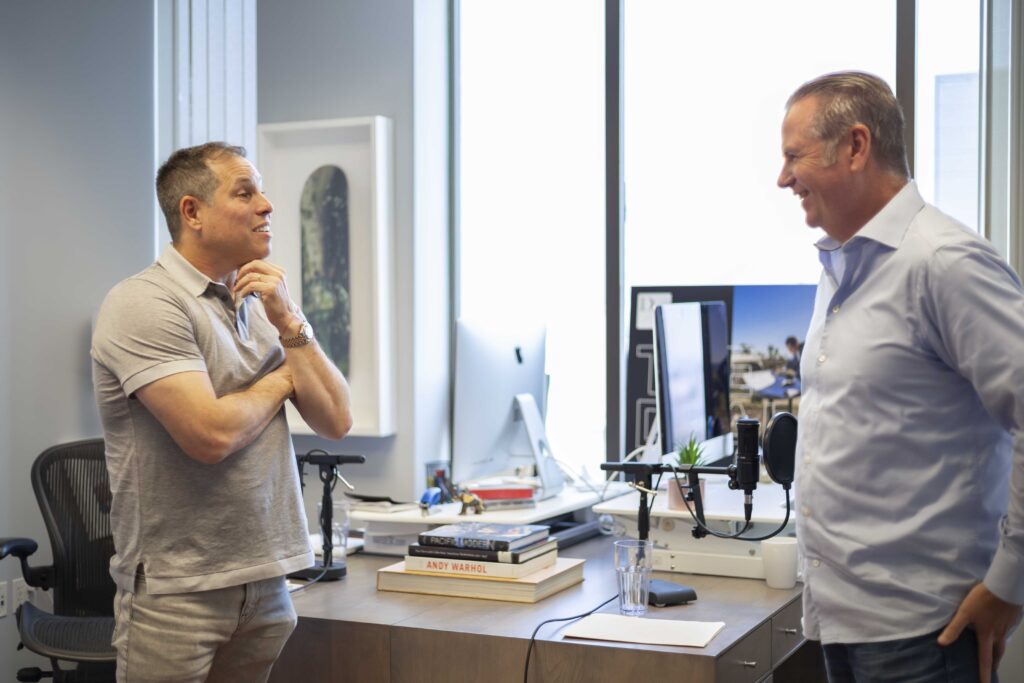
Episode Resources
The Deal With Danny Brown
The Deal with Danny Brown: Tune in and subscribe to The Deal with Danny Brown podcast on iTunes, YouTube, Google Play and Stitcher.
Full Episode Transcript
Danny Brown: [00:00:00] I actually started in real estate because my best friend David Ravitz, who’s partners with David Offer at Berkshire Hathaway. We were roommates at the time. I was renting a room from him in his condo. And they were killing it. I was still in the music business making no money and soon enough I was running out of money and putting everything on cards.
I had each band, I had a card for, I didn’t have any money and they had less than me and Dave Ravitz was in real estate and I’m like, you guys are killing it. I think I’ll go sell real estate. And Ravitz is like, he said, this is. A brutal business. I can’t tell you. Encourage you to do it, but if you do it, you would be good.
You know numbers, you know people. It’s like you’d be great.
Warren Dow: [00:00:54] Welcome to DIGS Influencer Podcast, the Titans of Real Estate. The show that provides direct access to the real estate industry’s top movers and shakers as they share invaluable insight on how to best navigate and succeed in any market. I’m your host, Warren Dow, founder and CEO of m3 Media and publisher of DIGS Magazine.
Our next guest is a lifelong Angeleno and top-producing luxury real estate agent who consistently ranks among the top 250 agents in the country. He has closed over 350 transaction sides and over $1 billion of sales volume, a Compass evangelist. He continues to thrive in his role as principal luxury States division. Please welcome to the show Danny Brown.
Danny Brown: [00:01:48] Hey Warren. Good to see you. Thanks for having me.
Warren Dow: [00:01:51] Yeah, good to see us. So let’s do this, shall we? Yeah,
Danny Brown: [00:01:53] I’m ready to rock. I appreciate you coming up here and coming to see me.
Warren Dow: [00:01:57] We’re on the coveted Wilshire Boulevard in Beverly Hills,
Danny Brown: [00:02:00] Usually I’m interviewing people. This is great that now I’m on the other side of the chair and I’ve been a big fan of your show, so awesome. Kudos to you. I love the show. You’ve had a lot of interesting guests, great content, and I listened to it. Every episode, so I’m glad to be a part of it.
Warren Dow: [00:02:16] Well, thank you very much. So let’s get into life before real estate, I always like to like, where did this journey for Danny begin? Tell us about where you grew up?
Danny Brown: [00:02:26] Poor child that grew up in Watts? No, I actually was a privileged child that grew up on the Westside of Los Angeles, born at Cedar Sinai of Lebanon, downtown LA. So I’m true diehard, it no longer exists.
So born in LA parents. We’re divorced very young. I don’t remember my parents being together. So that a huge impact obviously on me. And one of the things that had a big impact was now looking back, I ended up living in two houses growing up. One West LA four Oh five one East of the four Oh five so for all the drama and negativity and emotional distress that comes through families that divorce.
Looking back, that actually helped me because I’ve built a, a network that’s just extraordinary on both sides of the four Oh five and now doing what I do. It makes sense that, that, that’s part of it. So I grew up in the Westside. My sanctuary early on in life was sports, and I dove into sports deep, deeply like most boys do.
And as I got older and older and sort of the teenage years, it became apparent that I. Could continue to play at a higher level if I wanted to and had to make a decision as people were getting into all sorts of trouble and parties
Warren Dow: [00:03:36] and drug get in any trouble, any of that trouble?
Danny Brown: [00:03:38] Uh, I’d say I was on the edges periphery.
I didn’t get into much trouble. I was, I was so into the sports. And I knew at a young age, I was like, you know what? I have, I have a chance, so I want to go all out. So I pursued the sports and let you know the partying and all that sort of on the side and ended up playing through high school and college and ended up had a big injury.
That sort of changed my trajectory and my first job before real, before real estate. The entertainment business is where I went. So after my sports ended, I ended up playing baseball, ended at USC, got into the entertainment business cause I was promoting parties and promoting bands and I was deejaying and doing a lot of stuff.
So I figured it out in the music business. I love music.
Warren Dow: [00:04:19] Now where you, where, did you have your own promotion company or were you working,
Danny Brown: [00:04:22] I hardly call it a promotional company. I would say me and getting buddies to pass out flyers and you know, rent a cheap warehouse and charge 10 bucks at the door and pay somebody.
To balance and pay someone to DJ and you know, at the end of the night, make a couple hundred bucks. And we were just pumped. So I did that through college and that got me into looking for talent and being interested in band. So I started pursuing that, and my first job in music business was just
Interning in college for Interscope records with Jimmy Ivan at Interscope. So I saw that going down and, uh, I wanted to pursue that full force. I wanted to pursue a and R and producing. And so I did the mailroom on assistant and I grinded it out. And was that clubs every night looking at bands five or six.
Bands a night and out til three in the morning every night. And I wasn’t a party at them. I was really taking it serious, although there was a lot of partying going on around me. So, you know, that went on for years and there was a lot of grinding and not a lot of money. I mean, five bucks an hour. Yeah, kind of stuff.
And eventually, towards the end, I took a risk and I said, you know what, I have a couple of bands I was working with on my own on the side, and I develop them. And I thought, you know what? One of them was getting some interest from labels. He
Warren Dow: [00:05:38] was his names. Come on.
Danny Brown: [00:05:39] The only names that you would know that I didn’t get any direct credit for
Warren Dow: Like what?
Danny Brown: But bands like Jimmy Eat World.
Warren Dow: Oh yeah.
Danny Brown: My Chemical Romance. I worked for the guy that signed those bands. And so I’ve got to see it upfront of good, incredible, talented, smart guy. Uh, his name was Craig Aronson. He passed away, rest in peace and incredible guy, a mentor. So I did a lot of grunt work following him and learned a ton.
And, uh, so all those bands were huge successes, but I had some of my own that you’ve never heard of.
Warren Dow: [00:06:07] That’s interesting Danny. We have a similar, slightly similar story here. I had a three and a half year sort of career in the music business, working for a music magazine called Bam. B-A-M.
Danny Brown: [00:06:21] Of course on the Sunset Strip!
Warren Dow: [00:06:21] Yeah. So I was
Danny Brown: [00:06:23] the big hair, big hair time!! Guns and Roses
Warren Dow: [00:06:24] Big hair time. That was early nine roses. Early nineties and I’m chorus. I’m a musician. I played in bands. I used to play… I’m retired rockstar, but uh,
Danny Brown: we can have jam a little
Warren Dow: yeah, absolutely. But I had friends in the, in the worked for labels, and so it was, I would, that was my scene for three and a half years,
Danny Brown: [00:06:41] so that was my scene for get at college till about late twenties when I got into real estate.
So what happened in real estate, how I got into real estate was—
Warren Dow: [00:06:50] hey, before you go into that. Don’t jump Danny. So let’s go back. I want to hear, so as your child is, so both sides of the four Oh five this is really interesting. And because this is your home base now, so you’ve got a real broad and unique perspective on that.
Now, what did your parents do for work? What did that look like?
Danny Brown: [00:07:08] My dad was an endodontist. In Beverly Hills by day and a jazz musician by night. His parents wouldn’t allow him to pursue music and said, like most Jewish immigrants from Eastern Europe, that you gotta be a doctor, lawyer, dentist, and he being responsible, as they said, to do the right thing.
And it was a smart guy. He went to dental school and got, got an endodontics. So he did that and now he’s retired and he’s doing full-time music. Has a studio in the back of his house that he’s had for 30 years. My mom is an interior designer, so I grew up around design and real estate and used to work with her and my summers between baseball and football practice and several leagues.
I’d be moving furniture and carpets and schlepping stuff around for her. Both of them were very much, um. Influential in terms of both being startups, small business people. My stepfather was also an entrepreneur. He did commercial real estate financing and factoring, and he was a big influence on me as being a businessman and thinking big.
My stepmom was a casting director, so I had a lot of entrepreneurs around me and they all actually had really a lot of success investing in real estate. My dad did a lot of investing early on in park city, in deer Valley, Utah, the type of stuff in the seventies and eighties where you’d buy a lot for 100,000 and sell it a year later for 300,000 so he was involved early on that, and
Warren Dow: [00:08:29] Did that get you interested in Real estate cause you went, I want to for sure. So you were entertainment, you were SC, you were playing baseball, which is the congratulate. That’s a big time. Do you know John Riley, by the way?
Danny Brown: [00:08:39] Did you I know the name. Yeah.
Warren Dow: [00:08:41] So he, he played, he was a pitcher at SC. I grew up with him.
Danny Brown: [00:08:44] Okay. I know. I think it was a little older, but I know a
Warren Dow: [00:08:46] little older.
Yeah. I’m a little older than you probably don’t know.
Danny Brown: [00:08:48] I don’t believe you
Warren Dow: [00:08:49] say, uh,
Danny Brown: [00:08:51] but, Oh yeah. Real estate was the real estate bug was always in our family because I saw at a young age, I’d go to these lots with my dad and Utah. We’d go on these ski trips early on and, and there’d be flags in the ground and stakes around the lot, and you know, I hear what’s going on.
And it was fascinating that, wow, you could, I didn’t really understand the numbers, but I understood you could buy it for. 100,000 and sell it for 300,000 that sounded pretty good. And I knew my stepfather was also financing big commercial buildings, and so I was always hearing about deals and clients, and then my mom was constantly remodeling people’s homes and I’d be interning for her.
So it was around me.
Warren Dow: [00:09:29] You had a really good, yeah
Danny Brown: [00:09:30] and I never even realized it that it was around me. It was just that was the normal. That was normal. So I never really, I never thought about real estate, even though it was always around me.
Warren Dow: [00:09:39] It’s very cool. And you, and, and you emanated from this creative space with your, your dad’s jazz and your mom’s, and you know what I mean?
Danny Brown: [00:09:45] That’s, yeah. We have a lot of interesting activity in my family. My aunt was a big screenwriter. My uncle’s a big artists in New York, so arts and artists are in my family, and that’s probably my natural, innate. Skillset for similar reasons to my dad. I figured I’d pursue business, but I thought I w I, you know, I tried to pursue the creative side of the music business.
That’s where I first went and here I, it ended up in real estate. How about that?
Warren Dow: [00:10:12] Well, you started with Berkshire Hathaway, right?
Danny Brown: [00:10:14] I actually started in real estate because my best friend David Ravitz, who’s partners with David Offer at Berkshire Hathaway. We were roommates at the time. I was renting a room from him in his condo and they were killing it.
I was still in the music business making no money.
Warren Dow: What year is this?
Danny Brown: Is now like, you know, late nineties getting close to the millennium, 2000 and I, one of my bands that I was working with was Kitten Heat and getting offers from labels and I’m like, this is it. I’m going to stop and just focus on this. I did that.
And soon enough I was running out of money and putting everything on cards. I had each band, I had a card for, I didn’t have any money and they had less than me and Dave Ravitz was in real estate and I’m like, you guys are killing it. I think I’ll go sell real estate and make money and funnel it into this.
The bands and Ravitz is like a. First of all, nobody does what David Offer does. That’s an anomaly. So don’t compare anything to that. He said, this is a brutal business. You get kicked in the nuts. You have to have a steel cup on every day. He’s like, I can’t tell you, encourage you to do it, but if you do it, you would be good.
You know numbers. You know people. He’s like, you’d be great. So that’s how it started. 2001 2002
Warren Dow: [00:11:21] tell us about your first sale. I love, I love to hear about the first sale.
Danny Brown: [00:11:25] First sale was my girlfriend at the time. Or maybe my ex-girlfriend. It’s tight, but she was, we were very close friends and when I got my license, she’s like, Oh, I’m buying with you, and she bought a condo in Santa Monica, fourth street, nine 40 14th street.
It was like 500,000 at the time, and you’re at a 50% split and you have a 50% split on top of that with a mentor, so you get a basically 25% is what I made in my first couple deals and that that was the first deal.
Warren Dow: [00:11:56] Very cool. Then heard from there. So you mentioned, so your mentor, so David Offer was, was one of your mentors?
Danny Brown: [00:12:00] Yeah. Really David Ravitz who was right-hand man. Okay. Yes. Both of them.
Warren Dow: [00:12:05] So what was their style like? How do they bring you up? Was it grinded out, tough love, or was it more visionary? Strategic, Hey, thanks. Longterm. Like what was the, I’m just curious.
Danny Brown: [00:12:14] That’s an interesting question cause I’d have to go back and think about it.
Their style and their knowledge is pretty much second to none in terms of nuts and bolts. They’re about business and not smoke and mirrors. And there are about working hard, knowing the market better than anybody knowing the contract better than anyone. So I, it’s how I grew up. No, the contract as well as a lawyer know the inventory better than everybody.
Give people honest sound advice every day. Don’t chase the deal. Don’t chase the close. It’s nothing to do with that. And by the way, don’t be flashy. Don’t brag about it. Stay under the radar. And I didn’t even realize how huge David Offer was to probably 10 or 15 years later, because they’re both so humble.
So low key and underplay. You don’t see them in the media. You don’t see them taking ads. And so I thought it was. Normal. That was the only thing I had to look at was that. And so that accelerated my business cause they worked hard first in the office last out. And so it was me and David Offer and David rabbits.
It was Prudential, John arrow when I started, but it was us first in the morning, last at night, every day for 15 years.
Warren Dow: [00:13:20] Well, a common thread with our podcast tines real estate. Obviously, we’re interviewing people that have done very, very well in this space.
Danny Brown: [00:13:26] He’s a Titan
Warren Dow: [00:13:27] for sure. Well, you’ve done very well.
The commonality that I see is, you know, and, and it’s, it’s sort of strategic, sort of looking back. You made the decision early not to go it alone and to soak up all that experience and wisdom from people like David who’ve been there, done that, and we’re doing it. Um, because that’s really sort of a faster track then trying to absolutely go it alone.
And so it’s an interesting sort of commonality that I find it now. When you started, when you started to get your own, get some rhythm with your own career, did you say, okay. I’m going to carve out a strategy. I’m going to focus on West of the four Oh five Brentwood and this price point and the, did you do that kind of thing?
Danny Brown: [00:14:08] I did cause I basically modeled myself after David Offer and another gentleman, Larry Young, who’s been very influential. Uh, who was also at Berkshire Hathaway. So they were both very similar in terms of knowing the market and being a hard worker and being just friends and respectful to everybody and just great.
They were great leaders of mentors, but I was on my own. I wasn’t on their teams, but they would give me a lot of time and a lot of information. And Dave rabbits, they were answering questions 24, seven for me four years, which accelerated me. I think that being on a team is. Probably crucial for new people, and I would have told myself, get on a team officially get on a team and don’t worry about doing your own deals right away.
But I started doing my deals right away. I was doing small ones, but I was doing them.
Warren Dow: [00:14:55] How much business did you do? Who are you first here?
Danny Brown: [00:14:56] So my first year I was actually at DBL. My first year. Because Dave Ravitz, who was at John arrow, and David AVAs said, Hey, you can’t come into our office. It’s a bunch of Titans.
It was Nancy Beckerman was the manager who was also very influential in my career. And they said, get some experience. If you like the business, then you can come here. So I went to DBL, which Nick Siegel, who I didn’t know at the time, was the manager. So that was my first exposure. And he’s like the ultimate sales guy, just as smooth and smart and sharp.
And so I got so many, I picked the best things out of the people I saw. So. That’s where I started DBL, and then a year later I went to Prudential, Brentwood, and I was there for, I don’t know, 14 years. And I think I lost your question. What did you ask me?
Warren Dow: [00:15:38] How many deals?
Danny Brown: [00:15:39] Oh, my first year, so my first year, I think I did eight deals, nine deals, which is still, I think I made 40 or 50 grand because.
My mentor made 40 or 50 grand. My price points was really slow. I was the number one rookie, so to speak. No was no one do it. I didn’t realize I was doing a lot of deals, but I was doing deals more than I think we at DBL, they brought in like 50 new agents because they were opening all these offices and expanding, and there might be, you know, two or three of us that were doing deals.
Warren Dow: [00:16:06] So I’m painting the picture. So you’re, you’re in your first year, you got some really cool mentors. You’re soaking knowledge off of. You’ve done about seven, eight deals. So was there a point in the next couple, three years where you. You just said you had a feeling or a moment like, you know what, I’ve made it, I’ve made it in real estate, like it was there.
Did you have that, like where you had a big deal or something that that
Danny Brown: [00:16:28] I still don’t feel that way.
Warren Dow: [00:16:30] I still feel like I’m healthy.
Danny Brown: [00:16:31] I still feel like I’m chasing and you know, we were talking earlier about Aaron Kerman and true fattened and Sally Forster Jones and on and on, and Jeff, I feel like I’m chasing them.
I’m so far off that I don’t know David Offer. I just felt always felt. That was, I was so far away and I’d see what David Offer was doing every day and Larry Young was doing every out. So I never felt like, Oh, I made it. I know I was happy as hell. And I got my first paychecks and I didn’t have to call a lawyer to collect it because I spent my first 10 years in business working 67 hours a week in the music business and not getting paychecks and finding bands and then getting.
You know, getting them taken from me. So I, when I got a $3,000 check I, I thought, Oh my God, this is unbelievable. It screw the music business. I’m done with that. And I ran with it and, but I never got to the point where I felt I’ve made it. It was nice though to start making money and I was just grateful cause I had worked so hard in the music business for so long with nothing to show for it.
I was so grateful to be able to work hard hustle. And get a paycheck. Looking back, they were small deals. I was doing $200,000 deals, three hundred thousand five hundred thousand driving to places in the outskirts of LA that even growing up here, I had no idea how to get there. I was using a Thomas guide to find things, but I was hustling open houses.
Every Sunday, Saturday, trying to do whatever I could. Even if I didn’t have clients, which I didn’t, I would just drive around open houses every Sunday to learn the inventory. I mean, I just, I really took it seriously and soaked it up.
Warren Dow: [00:17:58] All the people you mentioned, I think that that’s a healthy, and I think they all share that sentiment.
Even Aaron Kerman, we just, you know, interviewed a couple of weeks ago, was talking about how when he doesn’t have listings, which is really not the case anymore, but you know, it’s low. He gets very nervous, like that’s his anxiety meters, sort of like, you know, Oh, I’m out of inventory, or my inventory, you know?
So it’s kind of a comfort. Thanks. I think everyone, depending on what, doesn’t matter what level you’re at, it’s a shared cause. We’re, we’re in. At the end of the day, you’re in sales, you’re in sales, you’re out of business. Every day you wake up, you gotta go, go after and you’ve got to go make it happen. I sold insurance out of, out of college, Danny.
Danny Brown: [00:18:36] It’s as hardcore as, yeah,
Warren Dow: [00:18:37] so. It was like, but it was the greatest experience. I wouldn’t say it traded for the world. I mean, it was, it was hardcore and, and,
Danny Brown: [00:18:44] yeah, you’re young guy trying to convince older people to buy insurance even probably to even know what insurance was.
Warren Dow: [00:18:49] Yeah. It was
Danny Brown: [00:18:49] implied. I was 22
Warren Dow: [00:18:51] years old trying to convince.
They’re like, what do you know? You get out of here? You know,
Danny Brown: [00:18:56] that’s a tough gig. Elegant shirts.
Warren Dow: [00:18:59] So skipping ahead. You work with an extensive, you know, today with an extensive list of high profile clients, entrepreneurs, athletes, entertainers, developers, and you had that good beginning in the entertainment industry, which I think gave you obviously some good network, good contacts, but was this, did this happen more organically from that, or did you go, Hey, there’s something here.
With this group that I could maybe start to really focus on network with and how did that,
Danny Brown: [00:19:26] I would love to have skip to the top quickly. I’ve seen a lot of broker, I would say a lot, but because most people don’t, I did not jump into high profile, high price points right away. I started selling low end and just grinded my way up, step climbing the mountain slowly, slowly, slowly.
And part of that was. The people I was around that David Offers the Larry Young’s and Nancy Beckerman is, they were almost had me feeling that you don’t have the right to represent these types of houses until you are an expert. And I took that to heart. I probably made less money my first 10 years in the business because I really took that to heart.
It’s great advice and it’s great advice. But then I realized that, wait, 10 years later, I know more than 99% of these guys that are selling $30 million houses, and I’ve been afraid to. To go there cause I thought you have to be the best person to. So that took me a long time to get that kind of confidence.
So getting to high profile people and CEOs and this and that. It took a while. It was a gradual growth and a gradual stepping up. And I think they’ve discovered me and they’re still discovering to me because I wasn’t a high profile and I’m still not super high profile and I’m not on the a hundred million dollar listings.
I’m behind the scenes and I’m starting to go out for those listings and I’m getting close. And it’s going to happen, but I’ve been climbing my way up and
Warren Dow: [00:20:45] we’ll, after we publish this podcast, Andy, you’re going to be, you’ll, you’ll hear secrets out. You’re, you’ll hit 500 million in GCI next year. I mean,
Danny Brown: [00:20:52] there using it.
Gary, can we sign that right here? Did Erin permits and he’s gonna he’s gonna throw a couple of hundred my way. Just share. I’ll throw a hundred. You guys are going to use everyone’s gonna throw me
Warren Dow: [00:21:02] a hundred you’re going to share, share the wealth.
Danny Brown: [00:21:05] I’ll tell you from your mouth to God’s ear.
Warren Dow: [00:21:07] So USC grads, let’s talk about urine SC grad.
And here’s another commonality I see with very successful realtors. A lot of them have graduated from SC. I don’t like. It’s, it’s very, it’s odd. And maybe it’s like sort of because the SC networking thing and all that, but what’s your take here? Do you, do you, I notice a lot of SC grads
Danny Brown: [00:21:26] that are blow you away.
I haven’t got one deal. That I’m aware of, or one client from SC network se networking groups, alumni. Now that’s not to say that the, the thesis about SC alumni, that it’s powerful and you’re right. I mean, there’s a lot of billionaire developers and just successful business people, especially in LA, that came out of SC and do a lot of networking.
I was a little different. I didn’t go to se out of school. Part of my sports store that we jumped around is, I actually had an injury in high school and I went from being a highly recruited athlete to only had a few choices and ended up originally going to UC Irvine for baseball. And I was happy there.
I’m going to stay there. And they had a great baseball program, but title nine came to the state of California, had to equalize scholarships between men and women and UC Irvine and all, all the UC schools had to cut a lot of sports, a lot of men’s sports. Our whole baseball team, 30 guys had to start over and I didn’t have a college resume, so I did the next thing.
Best thing is I had a best, another best friend, Dave rabbits, and I are best friends with Kevin malar, who’s played for the Boston red Sox. And anyway, he was at LA city college, junior college, and he said, you got to come here. It’s a great program. You’ll build your resume for college and then go to four year.
So that’s what I did. It went to LA city college. Had a great season, started getting recruited again, and I was getting recruited by some smaller schools, which I was happy with. But then SC came because my high school coach just got hired there. Frank Cruz just got hired as the assistant coach and he ended up being the head coach later on at SC and LMU and the US national team, but great guy and another mentor of mine.
And he said, come here. We just had, they had two or three of their worst seasons. In a row. And I thought, perfect. S he’s rebuilding. I can go there and play. So I went there and when I landed there, it was like, oops. They just had the best recruiting class in 30 years. And all the guys that, uh, their best recruits were playing outfield at Jeff Jenkins, who was a first-round draft pick and, and major league star was competing with me.
Jock Jones, also for the angels. Aaron Boone is the manager of the Yankees on and on and on. These were the guys I was competing with.
Warren Dow: [00:23:33] And what position did you play?
Danny Brown: [00:23:35] I was playing outfield.
Warren Dow: [00:23:36] Like which, which one?
Danny Brown: [00:23:37] All over the, I was playing center field. When I went to SC. It was like, wherever I
Warren Dow: [00:23:41] can go. What was your batting average?
Well,
Danny Brown: [00:23:43] at SC, I didn’t play
Warren Dow: [00:23:45] and so it was a thousand
Danny Brown: [00:23:48] I never got out. Once I didn’t play, I ended up having to make a decision because I got cut. They said, well, we’re not keeping you because we got the three guys at your position or first-round draft fix, and I had a decision to make. It was my third school.
In three years and I sat down with my dad and he’s like, you got to just finish school. And I did. So that also plays into my network cause I went to so many schools. Yeah. I expanded my network even further, but that, that’s why I think I didn’t have the SC network. I, I went and transferred my as a third year, you know, and it was only there for two years.
Warren Dow: [00:24:20] Side note, my 13-year-old son Tyler. He’s mr. He’s a baseball guy. That’s his. He’s, and we’ve been, we just went, got back for the Cooperstown last year off the best Cooper’s best. And uh, and so it’s interesting cause he’s prepping for high school ball. And just, it’s interesting to see like, and I’m learning, cause I was a basketball player.
I played baseball before, but I was playing in high school. Basketball was my sport. But I’m like how sort of strategic the position going in is like, because you have to be, the more utility you. You are the better chance you have to get on a team and
Danny Brown: [00:24:56] it’s just ultra-competitive
Warren Dow: [00:24:58] and it’s super good. Oh my gosh.
Even at the, you have to play baseball year-round just to be you in
Danny Brown: [00:25:03] the game right now. That’s a whole nother podcast. I’m not thrilled about the whole club travel ball thing. I don’t think it’s the best thing for the kids and it accelerates some kids. And then some kids with a lot of talent get left behind because they don’t play.
And that’s a whole nother podcast. But. Yeah, it’s ultra-competitive, but ultimately it’s great life lessons and you know, I carry all that stuff with me from sports to work ethic, the Mamba mentality, all that is part of who I am. I that’s, that’s me.
Warren Dow: [00:25:30] Very cool. Now we’re going to talk about this famous house that you sold.
Danny Brown: [00:25:35] Which famous one?
Warren Dow: [00:25:36] The famous one. The Brady book. Punch house.
Danny Brown: [00:25:39] That is a famous house.
Warren Dow: [00:25:41] So funny that you were involved in this.
Danny Brown: [00:25:45] That was a
Warren Dow: [00:25:45] fun watching the Brady bunch and that house
Danny Brown: [00:25:47] is already Lance bass is pissed off. Hates me now.
Warren Dow: [00:25:51] So tell me, so there was a bidding war with, with Insync member, Lance
Danny Brown: [00:25:55] and others.
It was a ridiculous bidding war. I didn’t realize how. The world thought about the Brady bunch.
Warren Dow: [00:26:02] So tell us the story. So, because let’s go back as most people probably haven’t heard this, but this is
Danny Brown: [00:26:06] a great story. This is a year or two ago now. It’s a little house in a non-discreet part of studio city and a fixer tear down.
If it wasn’t on the TV show, no one would think twice about it. It actually wasn’t the house they lived in and the TV show that was on a set, but it’s the exterior elevation when they, when they opened the show. So it comes on the market. And next thing you know. Press is going nuts. And apparently people, thousands of people are stopping in front of the house taking pictures.
I didn’t know anything about this, but people were doing that year round, not just because it went on the market. People would stop and take pictures. So it goes on the market and there’s like security there cause so many people want to see it. It’s a lot of celebrities and high profile people were interested in buying the house.
It’s like a collector’s item. And I had a couple of clients at a, an actress, well known actress client I took. And uh, ultimately, uh, I had HGTV wanted it. And they’re like, we really, we want it. We were going to run a show around it and it became, it was a full blown, crazy bidding war. And I’m sitting here going, I’ve got the CEO of HGTV.
Tell him he has to have it. Don’t lose it. Breathing down my throat. And they have like 30 offers and it’s going way up.
Warren Dow: [00:27:15] So who, so who reached out to, was it the CEO of HGTV was after the. The network that,
Danny Brown: [00:27:19] well, that’s where I was dealing with and their attorney who I know very well, and you know, great guys.
And you know, it was like, look, this is a business.
Warren Dow: [00:27:26] Don’t lose it. You have to have
Danny Brown: [00:27:28] it. Gotta have it. And they’re like, it’s, you know, this is, the price will go way up because we can have all these ancillary income streams and we, you know, we look at it differently and this and that. And then all of a sudden it comes out in the press that lats bass bought the house.
We’re in the middle of negotiations at this point and I’m, my heart drops, my stomach’s killing me. Like, Oh, I’m, I’m dead. These guys are going to kill me. This is it. My reputation, I’m screwed. You know that feeling in real estate and it’s all over. Lance bass is celebrating on social media and I call, it’s Ernie Carswell well listing and I call him and like we’re in the middle of counteroffers.
I know it’s a crazy multiple, but. There’s, there’s something I don’t know, and he’s like, no, no, no. This is a misunderstanding. I don’t know what to do. So I don’t know what happened behind the scenes, but it ended up that there was only Lance and us and one or two other parties that separated and it got, it was back and forth real quick.
And I remember I was actually, it was like at seven o’clock at night, I was taking a jog. I was on my phone talking to the CEO, and he’s like, what the hell is this? We got to live and I’m calling Ernie. I’m like, we’ll go to this. It was just one of those. It was a bidding war that you would see on TV,
Warren Dow: [00:28:37] just like a storage Wars, like another,
Danny Brown: [00:28:40] all the bidding Wars you see on millionaire listing are fake.
But this was a real one that was that dramatic and that intense. And at the end of the day, you know, we had did what we had to do and there was nothing signed. And Lance baths was celebrating cause he came in real high. And then we.
Warren Dow: [00:28:54] So it’s one of
Danny Brown: [00:28:55] those jumped
Warren Dow: [00:28:55] over on it. It’s one of those, Danny just keep adding a hundred grand until we, we get it.
I won’t,
Danny Brown: [00:29:00] I won’t say what happened, but it was, I was not going to lose that deal and I’m really sorry Lance. I’m a big fan of it and sinking my bad. He can come over. Actually they, HGTV loves him too, and they included him in the project and it’s all good. Everyone’s happy.
Warren Dow: [00:29:13] Did you ever talk to Lance about it?
Did he ever
Danny Brown: [00:29:15] like, he was angry, but he gave me a hug. Oh, cool.
Warren Dow: [00:29:19] That’s so funny. How. I mean, that house had its own brand, like that was international, I mean Brady bunch, and
Danny Brown: [00:29:26] it’s the second most photographed house in the country after the white house. Go figure now. Now you know the power of television that was priced at one seven I think we closed it at three-five so that was unusual to say the
Warren Dow: [00:29:38] least.
Use that as a calm.
Danny Brown: [00:29:39] No, the neighbors all want to sell a world selling like, sorry,
Warren Dow: [00:29:43] my house next door. So three
Danny Brown: [00:29:46] perfect. I got another bedroom. That’s a good Saturday night live skit, right?
Warren Dow: [00:29:49] Yeah, totally. So this the alias clientele, I’m always curious about. It’s a different, more demanding career. Sure. Right.
I mean, it’s not for everybody. Everyone thinks, Hey, not at all. No. It’s a whole different world. Right?
Danny Brown: [00:30:02] Most people can’t stomach it, and even if they think they can, they can’t. It’s very intense. There’s a lot of handlers, a lot of business managers, a lot of lawyers, a lot of friends, a lot of age. It’s a lot of personality and egos.
Warren Dow: [00:30:14] So how do you handle, let’s say you’re working with a major, a Lister. Major on selling their home and you strongly disagree over the selling the valuation, selling price. How do you navigate that?
Danny Brown: [00:30:26] No different than every other seller you meet with that wants 10 to 20% higher than their house is worth.
But straight forward, I’m a straight shooter and I think that’s why clients, clients that want the truth, like working with me, because I’m not going to butter coat. I mean I’ll, Hey, look you, you want 20 bucks. Hmm. Well, if we get 15 it’s a home run. We can try 20 odds are we’re not going to fool anybody and we’re going to be sitting for several months and chasing the market.
I don’t want you to blame me. I don’t want you to forget this conversation that I’m telling you. It’s worth 13 and a half to 15 but we’ll try 20 and you’ve got to let the business manager know and the lawyer and the husband and the wife and the girlfriend and the friend and the this and that.
Everyone’s got to know because they, the first one, they’re going to blame when it’s not selling. As me. Yeah. And even though I do all that and set the table, they still blame you. And now you’ve got to deal with that. Like, Oh, we had this conversation. I sent you this email summarizing our conversation. You remember this one and you gotta do it in a nice way.
Cause you’re not, you’re not trying to be right. You’re just trying to get the job
Warren Dow: [00:31:25] done and probably a level of respect that they almost want to see you fight for your price or the real price. Then. Just agree and say, yes, that sounds good, because I want the listing,
Danny Brown: [00:31:37] right? I mean, I walk away from
Warren Dow: [00:31:38] silver and I
Danny Brown: [00:31:40] walk away from so many listings, and so do a lot of good brokers.
You need to, and then there’s ones where you say, Hey, look, I’ll take the chance for whatever reason. Either you take the chance because the seller says, I know it’s a high price. Let’s try it for a couple months, and then we’ll make a shift. If we don’t get lucky, or you feel like, Hey, maybe I’ll, you know, nothing’s impossible right.
Maybe I’ll find that needle in a haystack. So I don’t always say no, and I am not 100% right 100% of the time. And real estate at the high end is really emotional and these price points have nothing to do with comps, so I got to be mindful of that too. But more times than not, you want to be honest and give them real data and real realistic expectations.
Otherwise, it just creates more conflict down the road. You got to always think five steps ahead. It’s chess, not checkers, right, Warren?
Warren Dow: [00:32:26] That’s right. Damn it.
Danny Brown: [00:32:28] I keep trying to tell these guys that, but no one’s listening. Stop playing checkers.
Warren Dow: [00:32:32] Speaking of the high end, Jeff Bezos just purchased David Geffen’s, Beverly Hills Warner estate to $165 million.
Danny,
Danny Brown: [00:32:43] who’s
Warren Dow: [00:32:44] Jeff? Yeah. Just some dude who owns a little company. I have a lone Jack called Amazon. It’s just a little bookstore.
Danny Brown: [00:32:49] I think I’ve heard of that. Yeah, that’s an incredible, incredible property.
Warren Dow: [00:32:54] So new price. Hold on. Let me set this. This is what we’re going to talk about this cause this is my home.
This is my mind. It is new price record blew the other one away and he reportedly, this is not confirmed, but he reportedly just purchased another $90 million. Vacant piece of land and Beverly Hills. He did from, okay. The state of late of Microsoft, which will reportedly set another record for the most expensive vacant land single-family piece of land.
So first question I have for you regarding the sale, like have we just reset the new norm for mega listings in LA, like where we don’t blink anymore at a hundred million dollar listings?
Danny Brown: [00:33:31] Yes, it’s good to be the King. And then
Warren Dow: [00:33:35] Jeff says, yes. There was an article today about. This 165 million deal.
Representative 0.13 I saw that of his net worth, which is like, yeah,
Danny Brown: [00:33:46] it’s like me paying $20
Warren Dow: [00:33:48] yeah. It’s like it’s a cup of coffee basically for most people.
Danny Brown: [00:33:51] Appreciate it. David and Jeff for not inviting me on the yacht when you did the deal. That was awesome. Glad I missed out on that one.
Warren Dow: [00:33:58] But how this market is changing any, so like for context in the last year alone, we had a hundred to $150 million purchase of the Chartwell state or the $120 million purchase of the Spelling Manor.
$100 million sale of NBC universal, Ron Meyer’s, Malibu state,
Danny Brown: [00:34:13] that’s the Ovitz. And then we have
Warren Dow: [00:34:15] the Bellaire spec home that sold for 94 that was listed for one point where like two 50 or
Danny Brown: [00:34:20] something skis.
Warren Dow: [00:34:21] Yeah, I mean, that’s just in the last 12 months. And I think right now there’s about seven.
Danny Brown: [00:34:25] There’s a lot active
Warren Dow: [00:34:26] listings over a hundred so my second question.
This is what struck me as interesting. Maybe it doesn’t for you, but it’s interesting to me that the Bazos-Geffen deal was done without an agent.
Danny Brown: [00:34:38] Yeah. Pisses me off.
Warren Dow: [00:34:39] Right. Cause the commission would have been just, you know, a little check of, of several million dollars. You think this will set a new precedent for the super high-end where.
You know, this was obviously off-market that duh, but like, like it really,
Danny Brown: [00:34:52] you don’t think so? No. I think that’s happened in the past and there’s one-offs and you know, billionaire and a billionaire that know each other and that happens. But the odds of two people, a buyer and a seller connecting and like the buyer wanting that house and the seller willing to sell at a price, it’s so unlikely.
And you know, 95% of the time, even at that level, if not 99.9% of the time there’s going to be brokers involved. And uh, I don’t think that’s a trend. You know, I think it’s
Warren Dow: [00:35:21] just curious cause that’s the first thing. They’re like, Ooh, who’s the listing agent? Or who’s the, who got the, and nobody, the word’s out.
Danny Brown: [00:35:27] The billionaires don’t use the listing as well. Most of them do. 99.99% do. And these guys were, Jeff was out looking at homes with agents. He’s been out there looking and,
Warren Dow: [00:35:36] well, not to be outdone. We got The One coming soon. Right? Being developed on Stradella Val, and just for context for the people that may have not heard about this, this place, it’s a hundred thousand square feet on four acres,
Danny Brown: [00:35:50] a little extra space,
Warren Dow: [00:35:51] 20 bedrooms, 30 bathrooms, five swimming pools, a Minako style casino, a nightclub with VIP access, bowling alley, a hair salon, a gym, a 30 car garage.
And here’s my favorite. A 5,000 square foot master bedroom coming soon for 500 million
Danny Brown: [00:36:11] cozy for a Russian oligarch or a Colombian drug. Lord.
Warren Dow: [00:36:15] Wow.
Danny Brown: [00:36:17] Can I just get invited to play some blackjack and go to the constituent of the disco,
Warren Dow: [00:36:22] get their gambling license, and it could be a cool casino, a hundred thousand
Danny Brown: [00:36:24] square feet.
I think you could have a few people
Warren Dow: [00:36:26] in JS. You could make a hotel
Danny Brown: [00:36:28] spectacular. Look, we’ve never seen homes in Los Angeles or anywhere in the world built at this level in this scale. Spas and wellness centers and discos and basketball and it’s, there’s several of them.
Warren Dow: [00:36:40] Where do we go from here though?
That’s like, it’s just like, okay, like where does it go to you? Like, mine’s got 37 bedrooms, I get 40 bass.
Danny Brown: [00:36:48] I don’t know that there’s enough land to do more. I mean, but maybe we would’ve said that five years ago we would have said that you could never build a hundred thousand square foot house. I don’t know where it goes from here.
You know? I don’t know. Here’s the 500 million is a nice marketing number. I mean, is it going to get 200. 300 we’ll see. It hasn’t sold yet. And there’s been, you know, billionaires looking for houses and like you said, six others that have sold. Now, the ones that I, that I’ve sold, that you’ve mentioned for the most part, are the Makowsky our homes with Providence and problems and acreage and their generational States.
I mean, that one, our state is 10 acres. It’s spectacular. Well, Winix estate is spectacular. Not new spec homes, although, you know, disco techs and wellness centers, who knows? Let’s see. Let’s see what you pay for it.
Warren Dow: [00:37:34] I just, before we started the podcast, I ran some numbers. Danny and 20 million is the new middle-class in LA, like though for the super high end.
Danny Brown: [00:37:44] But that’s, that’s the entry-level to the highest,
Warren Dow: [00:37:45] not even worth mentioning 20 million. Come on. That’s like, Oh, you bought a little 20 million,
Danny Brown: [00:37:49] something like that. Metrics and the calculus is mind-blowing. It’s mind-blowing. You think about the wealth, you have to have to purchase a $20 million home, hundreds of millions of dollars of net worth, let alone 50 a hundred so yeah, we’re getting into numbers that are boggling.
And let’s be real. I mean. Go to an entry-level Westside neighborhood and a $3 million home. You know, who’s, who’s got the income to buy that? When you really break it down, I mean, I’ve become numb to it because it’s what we do every day. But when you break out of that fog and say what normal people you know, can afford this much, and you know, you gotta make millions of dollars and have, it’s, it’s bonkers, but this is what we do and there’s a lot of wealth in the world and LA is having its moment.
It’s the most trendy wanted city in the world. So people from all over the world and all over the country want it. Buy homes here, so that’s helped us.
Warren Dow: [00:38:44] Well, LA just got a nice Ray is on the property taxes for the Kevin, you know,
Danny Brown: [00:38:50] flex and property tax.
Warren Dow: [00:38:51] That’s going to be, what, 12 no, it’s going to be like, no, it’s
Danny Brown: [00:38:56] going to be like 65 it’s like 20 million.
Warren Dow: [00:38:58] It’s like 30 million or something. 30
Danny Brown: [00:39:00] million in property taxes.
Warren Dow: [00:39:01] You’re paying like 3 million a month. And taxes. Yeah, you better be worth like a hundred and whatever billion
Danny Brown: [00:39:07] about the gardening bill, the utility bill, and you know, Murdoch just, you know, his big one that he bought
Warren Dow: [00:39:13] just started this. I don’t know why, but there’s an agent in the South Bay, classic guy.
He will remain nameless. Who was showing a, I dunno, a $12 million property in rolling Hills, you know, was giving a tour. It was just his listing. And the buyer said, uh, you know, how much is the electricity? Kind of a question, and, and, and the, you know what his answer was?
Danny Brown: [00:39:33] I can guess if you ask, this isn’t,
Warren Dow: [00:39:36] you can’t afford, he said, basically, he said he, and he did it in his flamboyant, sort of like brash, you know, way, which was, can, I can’t repeat here, but it was hilarious.
But anyway. It just it, it’s funny how like, yeah, we imagine all the other. Monthly expenses that are going on with it.
Danny Brown: [00:39:55] Do a budget
Warren Dow: [00:39:55] for their budget,
Danny Brown: [00:39:57] a budget
Warren Dow: [00:39:58] for that. What, 7 million a month? Let’s talk about Compass.
Danny Brown: [00:40:03] Compass
Warren Dow: [00:40:03] compass had lovers. They own half the block on Wilsher now and Beverly Hills.
Danny Brown: [00:40:09] We’re trying to own a lot more than half the block, but yes.
Warren Dow: [00:40:11] So go back to 20 or I’m going to take you back to 2017 your CEO compass CEO Robert Rapkin, unveiled an ambitious plan to grab 20% market share in the country’s 20 cities by 2020 while this hasn’t happened yet, getting close compass has been on a tear and up last year with 15,000 agents sold 88 billion in real estate, which was more than double.
The 33 billion from a year prior continues to acquire new, you know, Chris Cortazzo. I mean, the names are, are, are, are surprisingly, people that have had tenure with other brokerages are, are coming to compass. Yes, they are. Um, but can you say, here you’re, you were one of the earlier migrations,
Danny Brown: [00:40:55] say Robert is out of his mind.
To think that
Warren Dow: [00:40:58] the bold gold right.
Danny Brown: [00:41:00] In the world would think they’re going to come from starting a company to 20% market share who is Compass. That’s what we all said about four or five years ago. But Robert is a brilliant. Visionary, hardworking guy, authentic, incredible human being. And he’s put together a team of executives from all the best companies in the world and brought them into this real estate business and said, Hey, look, raising.
$1 billion. We have the best executives from every facet of the market, from the guy from Microsoft, our CTO, from people from Nike, from Goldman Sachs, and we’re going to now try to build the new real estate company and the way it should be. And he’s, he’s done it. He’s nowhere near where he wants to be, but you know what?
We are going to reach 20% by the end of this year. If not, we’re going to be damn close. And you know all of the most important markets where there are more and it’s sensational. And. They’ve treated agents really well. They’ve put agents first. Obviously, they have the resources to back that up and they went from an unknown startup that people would like to bad mouth and step on to a juggernaut that now everyone wants to work at and wants to be a part of.
And there’s been people like me and other veterans in the business that have been around that have experienced it and said, no, this is real. This is a real place. This is not smoke and mirrors. All you have to do is work here for a little bit and explore. , Robert and the other executives. You get a taste of what’s really happening here.
Warren Dow: [00:42:31] Well, when I find special thing, cause West LA. Is what Westside is unique. I mean, the, the caliber and sophistication of brokerages here is like no other for sure, than the country.
Danny Brown: [00:42:44] I mean, you guys
Warren Dow: [00:42:45] have a dozen Hilton and Hyland, the agency, it goes on and on. Okay. Yeah. These brokerages have been groundbreaking.
Each of disruptors in their own right.
Danny Brown: [00:42:53] For sure. Each of them is dynamic, dynamic, glowing in the business,
Warren Dow: [00:42:58] set the bar, and they, everyone resets and resets. So here comes compass into the most competitive, crazy, sophisticated market. And obviously, they’re everywhere, but like, and it’s pulling some of these top agents out.
I’m always fascinated by, okay, you left the agency in 2018 that
Danny Brown: [00:43:15] was, yeah, a tough thing to do, but I did. Yeah.
Warren Dow: [00:43:17] So I’m always fascinated by like, what’s the pitch? Like what, what got you over the, yeah, because you’re not alone. I mean, other people are, are,
Danny Brown: [00:43:25] have moved, but yeah, that’s sort of a touchy subject.
Obviously. I had great deep ties to, to the agency and love the agency and what they’ve done is spectacular. I mean, they set the bar for marketing in our industry five, six, seven years ago when they started some of their guy and Mauricio and Santiago and Billy and Blair and on. I have some of the most talented, smart, greatest guy, and I love those guys.
So I wasn’t thinking of leaving. And you know, things happen. And compass came to me and explained what they were doing. And I always wanted to be more than just a broker. When I went to the agency, when I left Berkshire Hathaway, the only reason I really left was it was a spectacular marketing company in Brandon, but it was, I wanted to be a part of it, wanting to grow with it, wanting to be an owner and wanting to be a leader.
And a, and I did have some of that there, and it was. Uh, and in phenomenal experience, but I wanted more of it and I wanted to grow more with the company. And that company was growing really fast, and I wasn’t included as I wanted to be enough. And they had no reason to include me if their company, they started, it was their baby.
Uh, but compass offered me all that. And I wasn’t looking for a new company, but when I looked into compass and open the hood and started exploring it and doing due diligence, and they said, Hey, we’re going to give you everything you want. You’re going to be a leader. You’re going to be an ambassador.
We’re going to give you equity. We’re going to help support you, and I got to start a podcast. And I was like, okay, they’re giving me everything I want. I tried to make her work at the agency. I would have. For sure it would have steaks. I love those guys, and they were great, successful company, but at the end of the day, what compass offered was so good and it wasn’t cash.
They didn’t write me a check. It just everything about it was so good, and now that I’ve been here, it’s surpassed my expectations and what I expected. It’s just, it isn’t smoke and mirrors. It’s, it’s real. At least that’s my experience.
Warren Dow: [00:45:14] Well, it’s an interesting dynamic because. I always look at everything through a marketing lens like, I’m, this is what I, why I do what I do.
I just love. And I love this vertical because you guys have it so tough. Guys and gals like to do it to this for a living, and I respect it and understand it because I came up through insurance and say, also want
Danny Brown: [00:45:32] everybody know the drill. It’s a battle.
Warren Dow: [00:45:34] I always found that the broker agent sort of relationship is interesting because on one hand, I mean Sally Forester Jones, Erica, they’re brands, they’re, they’re bigger.
Danny Brown: [00:45:46] I like companies.
Warren Dow: [00:45:46] They’re bigger than, than the brokerage brand in a sense that, that that’s, that’s the draft. That’s the magnet. So is it more, you know, at some level it becomes more about culture and fit and feel, or does it like it? Or, I’m an agent and I think if I leave brokerage X and join brokerage Y that I will.
Be able to grow my business 18% in the next 12 months.
Danny Brown: [00:46:13] Yeah. I think that’s a very difficult question to answer because it’s different for everybody. There’s no one right answer. I mean, real estate, everyone’s business is so different. Everyone’s experience is so different, and yes, people leave for. A variety of reasons, and we all hope whenever we change companies, you would think that you’re going to do better.
But I was doing great at the agency. I was doing great at Berkshire Hathaway before the age. So yes, you still hope it’s going to take you to the next level. But for compass, they had just everything and more that the marketing was. Phenomenal. And the agency set the bar for marketing and Hilton, Highland and COMPAS was right there doing the same thing and actually have some of their talented marketing people here now at the technology and that the technology stack is right up there or as good or better than anything.
And the people. And the culture just to work around these people. It’s just been, it’s been really inspiring and satisfying.
Warren Dow: [00:47:04] At the end of the day. You’re on a listing appointment. On a scale of one to 10 how important is a brokerage name versus your own individual? What got you there to a seller?
Danny Brown: [00:47:16] Five at most, I think it hurts you if you’re not at one of the elite companies.
If you’re at one of the half dozen or so, delete companies, that’s good. That’s all you need. They only want you, they don’t, obviously, they want the person, not the company.
Warren Dow: [00:47:29] So it’s interesting because I think the game has changed quite a bit. Like, you know, bigger was better back when, 10 15 years ago, of course.
And when you’re with, Hey, we’re the largest international. Yeah. Oh, like what does that translate to the single-family home homeowner in Pacific Palisades where this nothing as zero zero bears, but there was something to that. Now I think I’m where I look at it like a bike, like a tour de France, like I always preached, like I love that analogy.
Like you got a, you draft, you draft the brand. And if you do that and you learn how to do that successfully, you use less energy and you have just as much speed. Yeah. That is super strategic. That’s
Danny Brown: [00:48:09] brilliant way of looking at it. And it’s true. You know, it’s being smart and strategic and yes. Yes. And if you don’t do that, you’re going to be expending so many resources and energy.
Warren Dow: [00:48:20] It’s all headwind. Yeah. Onto my favorite subject, marketing and brand building. Now, Danny, you’re the only one that I know. You’ve launched your own podcast in this half last year. It’s called year-end. It’s called, I’m going to give you a plug. You’re going to give me a plug later, right on your console.
The deal with Danny Brown, which I think is brilliant in terms of, you know, how you position it for audience development, it’s your own creative outlet for your business. So tell us your origin story here. Like that’s a unique, unique thing.
Danny Brown: [00:48:50] Please subscribe and give me a five star review and do the same for Warren.
You know, it started years ago, the idea of wanting to do a podcast years ago, five, six years ago, and I even bought equipment from Amazon and tried a couple tests, runs, did some recording on my own, and I just couldn’t get over the mechanics of. How to record it and make it sound legit and how do I distribute podcasts I didn’t know much about.
So I two or three times over the last couple of years, I did that. And when I got to compass, you know, Robert basically was like, Hey, whatever you want to do, we support you. We believe in you. You know? And I said, well, I want to do this podcast. I’ve been thinking about it. He’s like, so do it. And it was like, all right, I have no excuses.
Now. And I’m like, I got to find somebody to take the mechanics out of it. And I did. I found a great producer who’s been doing it for six years. He’s an expert, set it up, does the equipment. I didn’t have to do anything but think about guests, and that’s how it started. And I thought, look, I’m just wanting to amplify.
Conversations that I have every day with clients, and the first year we’ve, we’ve done 38 or 40 episodes. It’s a lot of real estate centric guests in the first season because it’s my personal network, but there’s also head of the CIA was on it and NFL All-Pro guy James Ferrer was on it, you know. That’s
Warren Dow: [00:50:07] great.
Danny Brown: [00:50:07] Hedge fund, Stryker from K rock, my, one of my music business buddies on it. So now it’s basically elite performers in all businesses, sports and entertainment and beyond and trying to figure out, you know, what makes them tick, what’s their story, what’s their advice, so I can then distill it and distribute it to an audience to learn about.
Success in business and all that sort of stuff. So it’s not revolutionary what I’m doing, but it’s authentic to me and I just love it. It’s just been a great compliment to what I do.
Warren Dow: [00:50:36] And it’s probably improved your skills, right, as a, in your profession, because it’s the art of communication. And. Right, and listening skills, you have to really be a good listener, so
Danny Brown: [00:50:44] it makes it, my wife tells me I talk too much during the podcast, so yes, you have to be tuned in to listening and listening and not being in your own head thinking about what I want to say or what I want to comment.
It’s more just listen, which is what I do every day and what I need to do every day. Listening is the key. To being successful in business and negotiating. I mean, you gotta listen,
Warren Dow: [00:51:07] before I launched this podcast, I went to podcast school at Harvard and masters and yeah, it was actually, it was Yale school of podcasting grand.
Uh, it was a four-year course. No, I’m kidding.
Danny Brown: [00:51:17] You didn’t go to, I thought you went to Pierce College,
Warren Dow: [00:51:20] but it’s so funny cause you just do it. Like you just go and it’s rough and it sucks. And you go, Oh, do I sound like that? And you get my gosh. And then you just keep doing better. But it’s funny you said that it was.
My first iterations, my first several, and I’m still, I still suck at this, but I’m getting better. Right?
Danny Brown: [00:51:37] Yeah.
Warren Dow: [00:51:37] I can tell it is basically is sort of getting off your, these are the points I need to make and like getting off your page and just getting on the page. You know,
Danny Brown: [00:51:49] it’s so true because you come in with an agenda and you don’t want to miss bullet points.
You got to follow the lead of all the guests. You’ve got to follow them just like you gotta follow your client’s lead.
Warren Dow: [00:52:00] What are your thoughts on personal branding for agents?
Danny Brown: [00:52:02] You need to separate yourself any way you can. When you’re in a business where people look at us as a commodity, you gotta brand yourself and whatever that is from how you look, how you talk, how you dress, every marketing piece you put out your website.
I think branding is crucial. I don’t agree with the ‘Fake it till you make it’ culture that is bred so deeply in sort of the younger brokers that are in our industry. I think the TV to TV broker culture has probably helped that a lot. I think. I’m pretty sure that’s what, but I see a ton of that. So everyone’s branding themselves as going to the $50 million house on caravan and taking a picture and like.
Haven’t sold a $500,000 condo and Hey, take it easy with that. I think people are hurting themselves, but in general, you need to figure out what is your thing and then what, how do you, how do you separate yourself? How does that look? How does that translate digitally? Print? Do you want a podcast? Whatever you’re doing, whatever your, your brand is, it’s so important.
Warren Dow: [00:52:58] I agree wholeheartedly. And you know, it’s interesting with marketing. I mean, the world has changed. I launched our company in three media and digs 10 years ago. 10 years.
Danny Brown: [00:53:09] Yeah. And like for you, man, it’s major success. It’s a tough business. Publishing
Warren Dow: [00:53:13] tough business
Danny Brown: [00:53:14] for many
Warren Dow: [00:53:14] years. It’s publishing, but it’s marketing like this is this.
The reason why we’ve succeeded, I think is because we look at it through that lens. You know, branding, it’s just a channel. Digital just to channel. Social is just a platform. You know? It’s like smart. But realtors today. Because there’s so much like opportunity and access and distribution digitally and what have you.
You know, they chase shiny new objects throughout and it’s like people with a lot of talent are almost ruining their chances. I see too, a lot of great, cause they’re just. They’re out there chasing and looking for shortcuts. And
Danny Brown: [00:53:51] it’s a big looking-for-shortcuts business. And I’m seeing that a lot. And there, yeah, there are a few people that are blessed and lucky to start at the top, and somebody’s family or someone’s best friend is buying a big house and you see that in every business.
But for the most part, everyone’s starting at
Warren Dow: [00:54:07] the bottom. And even that doesn’t last. Right? You got one deal, two deals.
Danny Brown: [00:54:10] Everyone’s starting and grinding your way up and you’ve got to figure out your brand and be authentic and you gotta be consistent because everyone always asked me, what is your money?
You’re making money on your podcasts or you’re making mine. I’m like, well, I don’t know. I can’t tell you in 18 years, which ad I took made me money, but I know that I have all these buckets and a wide net digital print, audio, branding,
Warren Dow: [00:54:30] everyone, something important. I’m glad you brought that up. And here’s another crazy thought.
Most agents treat their business like it’s a short-term or short-term sales cycle business. Like, like it’s a retail furniture store or it’s like you
Danny Brown: [00:54:46] can play Xerox machine and
Warren Dow: [00:54:48] you can put out a coupon. You can hang a sign and say, open, you know, 10% off. It’s not homes. They’re the best agents in the country.
You know, 80 20 rule, right? Yeah, they do. They’re doing a maybe two listings, one listing a month. There are one sale a month kind of a thing, and they’re, they’re all a year, two years out. Like it’s a long sales cycle. You got to treat your marketing the same. It’s got to be long-term and it’s gotta be repetitive.
You got it,
Danny Brown: [00:55:17] but it’s a long game.
Warren Dow: [00:55:18] It’s not a sprint.
Danny Brown: [00:55:19] Like most people look to transact and hold on as much of the commission and hold onto it and its counter. It’s counterintuitive. If you want to last, you’ve got to play the long game. You got to go to market and you got to invest in your business. Part of our business is marketing and branding, right?
For ourselves and for the properties that goes hand in hand. And if you’re not investing a percentage of your income, you’re not treating it like a business. That doesn’t mean that go spend and go bankrupt buying cover pages, but you gotta strategically, consistently do it. And. I get it all the time. People said, well, did it work?
Did you get it? You can’t look at it. Did it work? You’re not going to be able to door knock for a week and I didn’t get a listing. You’re not going to be able to take out a couple of full-page ads and get calls from a billionaire in China like, no, you gotta every month or every week, plan it out year long, year after year after year, and that cast a huge net
Warren Dow: [00:56:14] and don’t think of it.
Don’t start with the product or the means like it’s a Facebook this or it’s an Instagram that, or it’s a print this or it’s like. First, I think you gotta be authentic to who you are. Who are you? Who are you for? What makes you tick 100% where’s your passion? Where you know, get into that headspace first and then figure out where you want that Headspace or that passion to exist.
Like where do you want the world to see that? You know, and it could
Danny Brown: [00:56:40] be only 100
Warren Dow: [00:56:41] it could be, Hey, I’m all about Instagram man, cause I’m a photographer, I have a photography thing and blah blah, great. Or I’m all about podcasting cause I was a radio
Danny Brown: [00:56:50] good point. You know what I mean? That people don’t look at it that way.
Like you can hear it shows here’s what they’re doing for success, but you got to bring it back to yourself. What works for me because
Warren Dow: [00:56:59] that person sees you and. If you had, if this was your first year in the business, Danny, and you had no deals, zero deals,
Danny Brown: [00:57:06] what it feels like you’re Danny Brown. Okay?
Warren Dow: [00:57:09] You go on a listing appointment that you want to, you went on a hundred listing appointments.
Okay, and you were up against Chris Cortazzo or Aaron Crow, whoever tossed those guys. Yeah,
Danny Brown: [00:57:19] no worries. Slammed
Warren Dow: [00:57:19] diet. My, my question to you would be, would you get any listings? If you went on a hundred and you had no business first year in the business, you had a car. This is Danny Brown compass. What’d you get?
Any of those listings? Yes. Why?
Danny Brown: [00:57:34] I think it’s a numbers game. I think if you do enough and work hard enough and get in front of enough people, you’re going to connect with somebody. If you’re smart enough and you’ve can back it up and you study each. Property and you know what you’re talking about. I’d be prepared, even if I haven’t sold anything, I’d be prepared.
I’d know all the inventory. I know all the comps and yeah, am I going to lose most of them? Yeah. You still lose most of them even after 18 years. If you’re going up against Chris Cortazzo and Jade mills, it’s a battle. We all battle each other, but if I was brand new, I would have enough information where I’m going to get a few of them are
Warren Dow: [00:58:08] going to get more than a few, and here’s why.
I mean, it’s sort of the laws of attraction and not being authentic. It’s like your whole. Passion and who you are. Your vibe is going to translate and align with people who are like you. It doesn’t matter if you’re number one or number 8,000 like ‘Hey, Danny’s cool. He’s chill.’
Danny Brown: [00:58:26] Someone’s going to connect and like your
Warren Dow: [00:58:28] style.
Play baseball. I liked that he had entertainment. I liked that he, his dad’s, you know, Jay. Ah, whatever it is, you know, there’s, yeah. People often forget to be themselves and project themselves and, sorry, I’m, I’m on. I’m on my.
Danny Brown: [00:58:43] I like it. Yeah. It’s a big lesson learned
Warren Dow: [00:58:47] for me. I just get crazy passionate about when I see people doing it.
Just be taking shortcuts. So anyway, let’s get off that, that
Danny Brown: [00:58:56] preach, maybe preach it. You’re right, 100% what’s the biggest, you did go to Yale, like ask
Warren Dow: [00:59:01] parents, what’s the biggest failure mistake lesson you’ve learned thus far in your, how many years is it now? 20
Danny Brown: [00:59:10] today or every day
Warren Dow: [00:59:12] in your career? Like what’s
Danny Brown: [00:59:13] how I got a 2001 I was an assistant.
I got licensed in 2002 so I’m 18 and 10 years. Damn. How did I do anything for 18 years? You know, I make so many mistakes. I feel like you have to make mistakes. If you push the envelope and try new things and constantly reach for greatness, you’re gonna make a lot of mistakes. You’re going to get kicked in the face and you just.
Just kind of get up key. How many times do you get up? You’re going to get knocked out every day. I feel like if there’s mistakes being made and a lot of the mistakes, there’s nothing I can control. So like you call them mistakes if things don’t work out the way you want them to, I call it a mistake. My view is anytime something doesn’t go well or I don’t get what I want, I think about what’s the lesson, what could I have done different.
Nine times out of 10 the answer is there is nothing I could have done different. It gets out of my control. One out of 10 maybe there’s something to learn and you add it to your toolbox and you don’t let that happen again and you repeat that. Mentality over and over and over, and that’s, but I’d make a ton of mistakes all and I think everyone does.
And I think you’re never going to be perfect and you’re never going to make everyone happy. And that’s a hard lesson to learn in this business. You’re never going to make everyone happy. Even if you execute flawlessly, people are still going to be upset about one thing that light was left on in the kitchen.
And even though you’ve. Show him the house 300 times and that the dogs and you know, 10 offers on the table and it’s 10% higher than the PR, you’re still going to be, Oh, you left that light down. I’m really disappointed. How could you, it’s just the way it is. You’ve gotta be able to stomach that. That’s our business.
Warren Dow: [01:00:44] How would you define your success in three words?
Danny Brown: [01:00:46] I’d say creativity. Listening, and I’d say a relentlessness.
Warren Dow: [01:00:52] Okay, we’re going to do rapid-fire. Oh, finish the sentence. If I wasn’t in real estate, I would love to
Danny Brown: [01:00:58] be a football coach.
Warren Dow: [01:00:59] Ah, that’s a curveball. That’d be baseball. If it was coaching.
Danny Brown: [01:01:04] I both, I just want to be a coach and I’m Mike quit today and go be a full-time coach of, you know that he would, I, Eric, I’m for hire.
Warren Dow: [01:01:11] He’s, you’re putting it out there right now. Yeah. If you could invite three people to your dream dinner party, who would be there and what would you serve?
Danny Brown: [01:01:18] Ooh, let’s see. How about Sean Carter? Jay Z. How about a
Warren Dow: [01:01:24] Lance bass?
Danny Brown: [01:01:25] Lance bass is always welcome. I got, there’s so many people. Who else? Oprah can come.
How bout, uh, who else? Who else do I love? I have a Derek Jeter.
Warren Dow: [01:01:36] Ooh, that’s a good one.
Danny Brown: [01:01:38] What would I serve. We can have some sushi, some tequila, some sushi, and mix it up. Derek and Oprah, I can,
Warren Dow: [01:01:44] you know, that’d be a fun dinner, huh?
Danny Brown: [01:01:46] JC?
Warren Dow: [01:01:48] Good conversation. I’d like to be the fly on the wall now and answer this question.
Favorite app?
Danny Brown: [01:01:53] DocuSign.
Warren Dow: [01:01:54] Oh yeah. That’s a profound statement from you. That’s how you get paid. What’s your go-to social platform?
Danny Brown: [01:01:59] Instagram.
Warren Dow: [01:02:00] Favorite place to have dinner in LA.
Danny Brown: [01:02:02] Dantanna’s.
Warren Dow: [01:02:04] What did you try once, but we’ll never try again.
Danny Brown: [01:02:08] I’ll try anything once in probably twice. Oysters. I’m not an oyster fan,
Warren Dow: [01:02:13] you know?
I’d have to agree with you. That would be on, that’d be my top like, yeah. Where do you live, Danny?
Danny Brown: [01:02:19] Cheviot Hills. Couple of the nights here.
Warren Dow: [01:02:21] That’s one place I know of, but I don’t know about what’s under
Danny Brown: [01:02:26] the radar.
Warren Dow: [01:02:27] What’s it like?
Danny Brown: [01:02:28] Cheviot Hills. It’s unlike most neighborhoods in LA. It’s a real neighborhood.
It’s not a grid. There’s lots of hills and trees. It looks like an East coast, sort of Connecticut, Vermont,
Warren Dow: [01:02:38] lots,
Danny Brown: [01:02:39] bigger lots older homes, charming homes. It’s central to everything, surrounded by massive golf courses, which is rare in LA. There’s this. Rancho Park golf course to Hillcrest country club golf course, and uh, you know, it’s two minutes drive to Beverly Hills, two-minute drive to century city, you know, 10 minutes on the freeway to the, to the beach.
It’s very central. It’s a ton of families and parks. It’s, it’s unusual for LA.
Warren Dow: [01:03:04] What do you do for fun when you’re not selling real estate and podcasting? And.
Danny Brown: [01:03:07] Surfing, playing baseball or sports with my kids, looking at art. I love looking at art.
Warren Dow: [01:03:14] Cool. And do you travel? What do you like?
Danny Brown: [01:03:16] Yes, we do travel a lot.
As a family. Yes. All the time. Like it’s mandatory. Love going a lot of places. Italy, we’re going to Italy this summer. My wife and I, I love. Hawaii is a special place because we serve, our kids are getting into surfing.
Warren Dow: [01:03:30] Which Island do you like?
Danny Brown: [01:03:31] I like going to Awahoo. I like going to the Kahala diamond head because I can chill outside of the city, but then I can get into Waikiki for dinner and I could surf a bunch of places and best of both worlds.
Warren Dow: [01:03:41] Tell us a funny, can’t believe it happened to me. Real estate story.
Danny Brown: [01:03:45] Oh, there’s a lot of those, but I have one that always pops up. It’s my client who’s a, we’ll go nameless. A big business guy. Telling me how great. He’s loving life. He’s bought his house. He bought a house and I sold it to him and he wanted me to come check out some upgrades and he’s like, you’ve got to come by any time, even if I’m not there, just come by.
And I, so I texted him one day, I’m like, Oh, I’m down the street. Come by, come by. So I show up. I’m like, you sure I can go in? I was, no, it was like, yeah, nobody’s home. Just go in and dah, dah, dah, dah. There’s, he told me where the key is totally the alarms. So I walk in and. Oh God, I don’t, I couldn’t tell someone home.
It got a weird feeling and I go to the backyard cause he wanted me to, he redid the pool and guess who’s that in the backyard? His topless hot model girlfriend. Oh. I’m like, Oh hi.
Warren Dow: [01:04:32] Hello.
Danny Brown: [01:04:32] How are you? Yeah, that’s embarrassing. Yeah. Sort of. I’m sorry. Not really,
Warren Dow: [01:04:39] dude. Did
Danny Brown: [01:04:41] you know your phone? Oh, I forgot I did it.
I’m like, ah, okay. So I saw the pool and got to meet her and she was lovely, but that was a funny story. That kind of stuff happens. You hear that. You gotta be careful what house you walk into, right? You think you’re alone and you’re not.
Warren Dow: [01:04:55] This is a reoccurring, not my me, that exact one, but that
Danny Brown: [01:04:59] I’m okay. No, not, no, no.
That was a good one.
Warren Dow: [01:05:01] So let’s get your closing thoughts. What are two pieces of advice you’d give to your younger self? Danny.
Danny Brown: [01:05:06] I think about this often. One would be to think bigger, think bigger, and don’t be afraid to take risks. Investment risks. I know in real estate, especially when I started, I thought, I can’t invest in real estate.
I don’t know enough. And you know, that was 2001 2002 and I was looking at $500,000 fixers and prime Venice thinking, God, this would be great to fix up, but I didn’t have much money. Didn’t think I was experienced enough, but I could have. If I had the confidence and the knowhow, I didn’t even need to know.
I just needed the confidence to go out and say, Hey, can I borrow a few bucks here and make some money? So I think have more confidence and think bigger.
Warren Dow: [01:05:44] If you could have one superpower, what would that be?
Danny Brown: [01:05:47] Reading the future. The ones I got that down, I pretty much could do anything.
Warren Dow: [01:05:51] You know, that’s, that’s unique.
We ask this question all the time and that, I haven’t heard that one. I like that.
Danny Brown: [01:05:55] Maybe ending terrorism on the planet. That would be a good superpower and I wouldn’t mind that. If I could read the future, I could do a lot of things you could do.
Warren Dow: [01:06:03] I’m
reading
Danny Brown: [01:06:04] your future right now where it’s looking bright.
Warren Dow: [01:06:06] Is it above? Yeah, it’s looking good. Nice. What could you tell the audience that they would be surprised to know about you, even though we covered a ton about you? What would be any surprise? Like. Idiosyncrasies that we would love to hear about. Of course. I
Danny Brown: [01:06:24] mean, I’m nuts. What else can I do? There’s so much there it is.
I’m not, I’ve lost my mind. Uh, you know, I don’t know. I think I’m probably a lot older than I look. That’s one thing. And don’t judge a book by its cover. All right. I’ll put that.
Warren Dow: [01:06:39] All right. With that, I’d like to thank you, Danny Brown, for
Danny Brown: [01:06:42] sharing your story with us, with a lot of fun,
Warren Dow: [01:06:44] continued success to you.
Danny Brown: [01:06:45] I appreciate it. It was great spending time with you and we’ll,
Warren Dow: [01:06:47] let’s try to do this again soon. Okay.
Danny Brown: [01:06:49] I’ll get you on soon. I like you on my podcast.
Warren Dow: [01:06:51] Hey, let’s do it. Let’s do it. Alright, thanks.
Danny Brown: [01:06:53] I appreciate it.
Warren Dow: [01:06:54] You got it. Take care.
and that wraps up this episode. Thank you for tuning in and we hope you found some value. Please share, subscribe, and leave a review. Find us on iTunes and your favorite podcast provider. Until next time.

